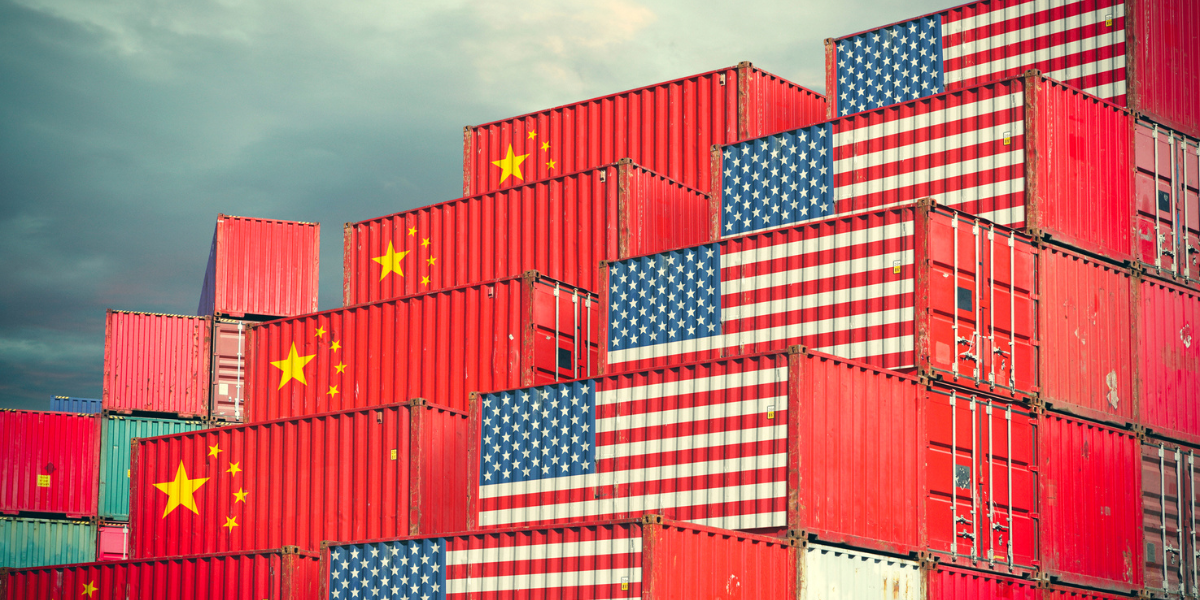SINGAPORE, May 20, 2025— Manufacturing and logistics demand in Indonesia and Vietnam is expected to grow by up to 20% over the next three years, as companies increasingly prioritise building resilient regional supply chains over reacting to short-term tariff fluctuations. This is according to Knight Frank's Horizon Report, From Whiplash to Resilience: Corporate Real Estate in the New World Order.
Structural cost differences remain the key driver behind multinational companies from the Chinese mainland, Japan, and South Korea redirecting capital into Vietnam and Indonesia under “China+N” strategies. By investing in these Southeast Asian markets, firms gain access to cost-efficient, purpose-built industrial facilities that support supply chain diversification.
However, the recent 90-day suspension of the Chinese mainland’s tariffs, reducing rates from 145% to a base of 30%, has injected fresh uncertainty into relocation decisions, further reinforcing demand for short-term leases and flexible, plug-and-play logistics parks.
Tim Armstrong, global head, occupier strategy and solutions, Knight Frank, says, "Our analysis shows that while the temporary tariff reduction provides companies with breathing room, the 'China+N' strategy has become a standard operating model rather than just a response to tariffs. We have entered a time where corporate real estate strategy must evolve from footprint expansion to operational durability and total-cost performance. This isn't a cyclical adjustment, it's a structural transformation that requires entirely new approaches to portfolio planning, lease structures, and location strategy."
Knight Frank’s research highlights diverging trajectories across Asia-Pacific’s real estate markets.
Christine Li, head of research, Asia-Pacific, Knight Frank says, "The shift toward an ‘Asia for Asia’ model, where over 65% of supply chain investment decisions are now driven by intra-Asian consumption, is accelerating. Industrial demand is rising in countries such as Vietnam, India and Indonesia. Meanwhile, regional service and gateway hubs such as Singapore and Hong Kong SAR, face second-order risks from US tariffs via global supply chain disruptions and spillovers from directly impacted economies."
Chart 1: Vulnerability Matrix – Regional Exposure to Trade Shifts

Source: Knight Frank analysis; US Census Bureau (2024); World Trade Organization (2023)
Indonesia and India maintain strong growth potential. Indonesia is expected to see 15% to 20% growth in manufacturing-related real estate demand, led by electronics, automotive, and logistics sectors seeking long-term, purpose-built facilities. Meanwhile, India’s office market remains strong, accounting for 47% of regional leasing activity in 2024—up from 36% in 2015—with a record 6.68 million sq m of transactions, driven by IT firms, Global Capability Centres, and multinationals attracted by talent and cost advantages.
Vietnam remains a key beneficiary of ‘China+N’ diversification but also stands among the most exposed to the US reciprocal tariffs. Knight Frank research projects a 15 to 20% rise in demand for manufacturing space in Vietnam, reflecting sustained interest from international occupiers, particularly large Chinese mainland e-commerce firms seeking logistics facilities over 100,000 square metres.
The Chinese mainland may see temporary relief from the tariff reduction, but structural challenges persist with rising industrial vacancy rates in Shanghai and Beijing due to persistent oversupply. The government's focus on domestic consumption remains the primary expected driver of industrial space absorption.
Knight Frank's latest Global Corporate Real Estate Sentiment Index (GCRESI) reflects the shift toward operational resilience. When sentiment metrics declined immediately following the April 2 tariff announcement (-1.01 points overall), longer-term strategic indicators such as capital expenditure (+0.04) and physical expansion plans (+0.06) continued to show strength. This pattern of tactical caution paired with strategic conviction reflects how companies prioritise adaptable, resilient approaches in markets such as Indonesia and Vietnam over simply seeking the lowest-cost locations. More information about the GCRESI is provided in the annex.
CRE Playbook: Five essential strategies for navigating the new world order
The report outlines a comprehensive Corporate Real Estate Playbook for succeeding in what has become a structurally volatile trade environment:
- Embrace flexible lease structures: Traditional 5-year terms give way to shorter 1-3 year arrangements with expansion options and break clauses
- Prioritise purpose-built facilities: Built-to-suit developments are replacing speculative projects as occupiers seek spaces tailored to specific operational requirements.
- Pursue regional self-sufficiency: Companies are creating redundancy within regional footprints rather than relying on global integration.
- Design for operational resilience: Facilities that can adapt to changing production needs and trade conditions are commanding premium values.
- Integrate scenario planning into decision-making: The 90-day negotiation window emphasises the need for multiple contingency plans in real estate strategy.
Tim adds, "Corporate real estate has moved beyond location strategy to become a vital component of operational resilience. Despite the temporary easing, the current trade environment reinforces the need for agility in portfolio management and lease structures. Companies that calibrate their real estate approach will be better positioned for success regardless of how the US-China negotiations unfold."
The full report, "From Whiplash to Resilience: Corporate Real Estate in the New World Order," is out now.
Ends
Annex: Additional Information: Knight Frank Global Corporate Real Estate Sentiment Index (GCRESI) Q1 2025
Knight Frank's Q1 2025 Global Corporate Real Estate Sentiment Index (GCRESI) provides unique insight into the immediate market impact of President Trump's April 2 tariff announcement by comparing survey responses immediately before and after the policy shift. It reveals that a single week effectively halved the hard-won sentiment gains achieved over the previous quarter.
The Q1 2025 index had initially shown a strong recovery, rising +3.03 points to 36.69, the first net-positive reading since mid-2022 and a signal that corporate real estate leaders were finally moving beyond pandemic-era caution toward strategic growth.
However, Knight Frank's unique methodological approach, which continued data collection through early April, revealed a clear shift in sentiment following the tariff announcement. A direct comparison of the 47 survey responses before April 2 with the 47 responses afterward shows overall sentiment falling -1.01 points from 37.41 to 36.40, halving the quarter's gains in a week.
All three sub-indices declined immediately following the announcement:
- Growth sub-index: -0.32
- Portfolio sub-index: -0.24
- Workplace sub-index: -0.45
This downturn came after the strongest quarter for sentiment since Q2 2022, with key indicators abruptly reversing course: relocation sentiment dropped -0.30, office design and configuration fell -0.30, and offshoring expectations declined -0.19. Revenue and headcount growth expectations also dipped.
Some longer-horizon indicators showed resilience, with capital expenditure sentiment rising slightly (+0.04), physical expansion edging upward (+0.06), and sustainable real estate ambitions strengthening (+0.19). This divergence between immediate tactical indicators and longer-term strategic metrics suggests companies are maintaining strategic direction even as they adjust operational plans.
Notes to Editors
Knight Frank LLP is the leading independent global property consultancy. Headquartered in London, the Knight Frank network has 740+ offices across more than territories and more than 27,000 people. The Group advises clients ranging from individual owners and buyers to major developers, investors, and corporate tenants. For further information about the Firm, please visit www.knightfrank.com.
For more insights, please download the latest edition of Knight Frank’s Asia-Pacific Horizon series, Whiplash to Resilience: Corporate Real Estate in the New World Order, report below.
.png?width=1200&name=Bottom%20(1).png)





